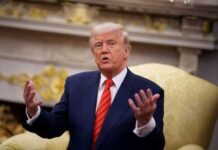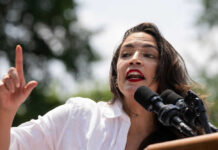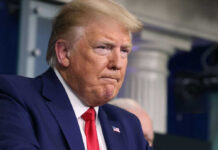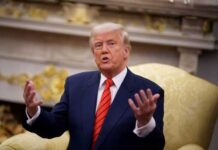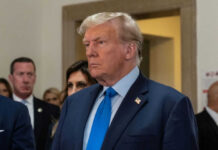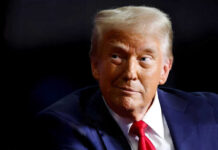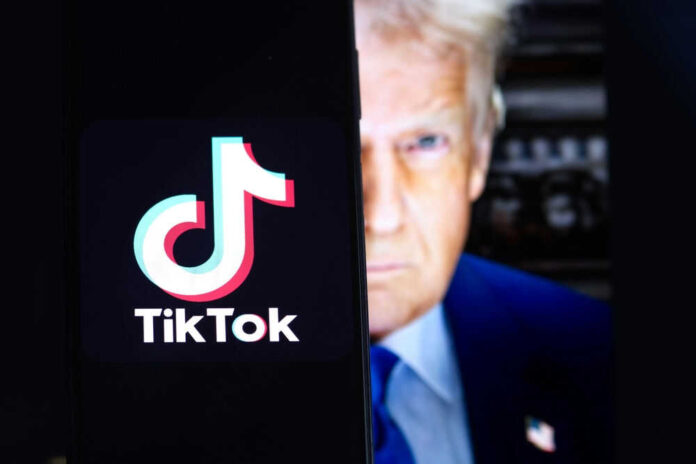
(LibertyInsiderNews.com) – The real story behind Trump’s TikTok maneuver isn’t about viral dances, it’s about how a single executive order exposed the fault lines between American data security, Chinese tech ambitions, and the future of global internet freedom.
Story Snapshot
- Trump’s directive to force a U.S. takeover of TikTok was the first of its kind, targeting a Chinese-owned tech giant at the heart of American pop culture.
- The Oracle-Walmart partnership was pitched as a safeguard for U.S. user data, but competing narratives clouded who actually controlled TikTok’s future.
- Legal and political delays left TikTok’s fate unresolved, revealing the limits of executive power and the enduring complexity of U.S.-China tech relations.
- The episode set a precedent for government intervention in cross-border tech deals, with echoes still shaping policy debates and business strategies in 2024.
Trump’s TikTok Ultimatum: A Collision of Technology and Geopolitics
Summer 2020: The White House, usually focused on trade wars and tariffs, suddenly spotlighted TikTok, a Chinese-owned app beloved by American teens and celebrities alike. The stated concern was national security, specifically, fears that ByteDance, TikTok’s Chinese parent, could funnel American user data to Beijing. With more than 100 million U.S. users, TikTok wasn’t just a cultural sensation; it was, Trump argued, a potential pipeline for foreign influence and intelligence.
Trump’s executive orders landed like thunderbolts: ByteDance had to sell TikTok’s U.S. business to American buyers or face a nationwide ban. The administration justified this as a bold defense of American data privacy and sovereignty. Critics, however, saw echoes of protectionism and questioned whether the move was more about scoring political points than solving real security threats. Yet, the message was unmistakable, Washington was willing to redraw the rules of global tech ownership to keep Chinese influence at bay.
The Deal That Wasn’t: Oracle, Walmart, and the Mirage of U.S. Control
Oracle and Walmart quickly emerged as the chosen saviors, racing to hammer out a deal that would ostensibly put TikTok’s U.S. operations firmly under American stewardship. Trump publicly blessed the arrangement, touting it as a victory that would put “total security” in American hands. Oracle was cast as the “trusted technology partner,” while Walmart eyed a digital retail bonanza. Behind closed doors, however, the negotiations were less straightforward. ByteDance fought to retain a majority stake in the new entity, TikTok Global, fueling confusion and debate over who would actually call the shots.
Despite the rhetoric, the deal spiraled into legal and regulatory limbo. Federal judges blocked the looming ban, and the Committee on Foreign Investment in the United States (CFIUS) struggled to resolve the tangled ownership structure. As the dust settled, TikTok remained operational, ByteDance retained technical control, and the Oracle-Walmart deal faded into the background. The Biden administration inherited the mess and opted for further review instead of immediate action, underscoring the practical limits of executive muscle when legal complexities and international business interests collide.
Ripple Effects: A New Era for Foreign Tech in America
Trump’s TikTok saga was never just about a single app. It marked a pivotal moment in the U.S.-China technology cold war, setting a precedent for aggressive government intervention in the digital economy. American lawmakers, emboldened by the TikTok episode, began eyeing other Chinese tech companies with suspicion, leading to renewed scrutiny of everything from mobile games to cloud computing. The message to foreign firms was clear: access to the U.S. market now came with steep political and regulatory costs.
For TikTok’s millions of American users, the uncertainty sparked anxiety about losing access to their favorite platform. For U.S. businesses, it opened new doors but also introduced unpredictable regulatory risks. For China’s tech sector, it signaled that the era of easy expansion into the West was over. The broader industry effect was a surge in “digital decoupling”, with governments worldwide considering their own curbs on foreign apps and the notion of a truly global, open internet slipping further out of reach.
Experts Weigh In: Security, Free Speech, and the Shape of What’s Next
Tech policy analysts and legal scholars dissected every twist. Most agreed that the core concern, protection of American data, was legitimate, but many doubted the efficacy of the forced divestment approach. Business leaders worried that such unpredictability would chill foreign investment and stifle innovation. Civil liberties groups raised alarms about government overreach and the precedent this could set for censorship and digital rights.
The ultimate legacy of Trump’s TikTok intervention is still being written. Congress continues to debate new legislation targeting foreign-owned platforms, while TikTok operates in a state of suspended uncertainty. The episode forced the world to grapple with profound questions: Who controls the data that powers modern life? How far should governments go to protect national interests? And can the internet remain open in an era of rising digital protectionism?
Copyright 2025, libertyinsidernews.com




